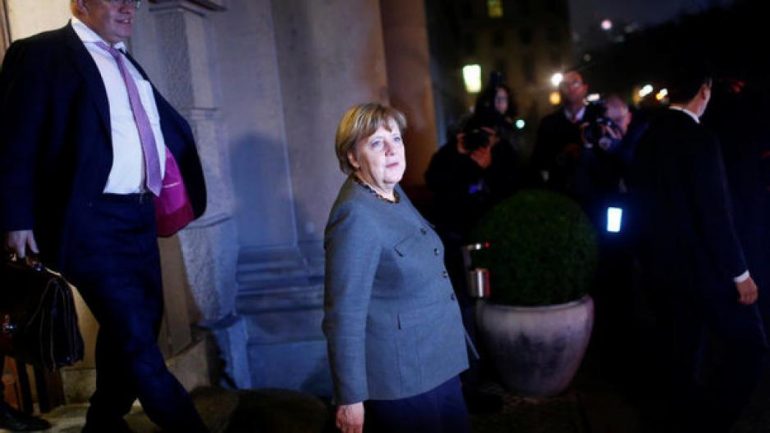Mobility is evident in the ranks of the German Social Democratic Party (SPD) on the issue of dialogue for a new grand coalition, a day before the meeting of Martin Schultz, the party president, with the also Social Democrat President of the Federal Republic of Germany Frank-Walter .
SPD politicians, in their statements, now openly call on their party not to continue to block the debate on forming a new government (of the so-called grand) coalition with the Christian Democrats.
In particular, the leader of the right wing of the SPD, Johannes Kars, told (today's edition of the newspaper) "Passauer Neue Presse" that a new grand coalition with the Christian Democrats should not be ruled out.
Martin Schultz should go to the President of the Republic Frank-Walter Steinmeier, open to dialogue. "We can not tell the federal president just that it was. The federal president should explore the possibilities for forming a government. "But that is not possible if the SPD excludes the grand coalition from the outset."
Byrd Westphal, the SPD's spokesman for economic affairs in the parliamentary group, spoke in favor of talks with the Christian Democrats and against the new election. "The SPD is very committed (ie in favor of the elections), but the move is possible. "The SPD must formulate clear terms and the Christian Democratic Union must show flexibility," he told Handelsblatt.
Also, the legal expert of the SPD parliamentary group, Johannes Fechner, advocated a more cautious stance on the issue: "The SPD should not take the lead in the issue of new elections and should take seriously the discussions with the President of the Republic He told the same newspaper.
Half of Germans want elections
Half of Germans are in favor of calling new elections after Angela Merkel's attempt to form a four-party coalition government failed, according to a poll by the INSA Institute for the Bild newspaper.
Specifically, 49,9% of respondents were in favor of holding early elections. Also, 48,5% consider the decision of the center-left party of the Social Democrats (SPD) not to participate in a new "big coalition" under Merkel's conservatives, an option in which only 18% voted in favor.
The SPD lost ground in the September elections after its governing coalition with the Christian Democrats and the Christian Socialists for the past four years.
The failure of exploratory talks between the Christian Union (CDU / CSU), the Free Democrats (FDP) and the Greens plunged Germany into political uncertainty and significantly increased the chances of a new turnout.
According to the INSA poll, 28% of respondents blame FDP leader Christian Lindner for the collapse of the talks, 27% blame Merkel and only 13% blame Greens leader Cem Ezdemir.
Four out of 10 voted that Merkel should run for chancellor again if new elections were called, but 24% would prefer another candidate, although no consensus was reached on who he should be.
Most Germans would prefer a CDU ruling coalition with the FDP after new elections are likely to take place, with the next combination of preferences being a governing coalition with the SPD, the Greens and the Left Party (Die Linke).
However, the poll showed that even if new elections were held, the balances of political power would change little compared to those formed after the September 24 elections: the CDU drops marginally and holds 30% of the vote, the SPD remains stable at 21%, the Greens at 10% and the FDP at 11%.
If this is confirmed at the polls, it will mean that again the only majorities that will be mathematically feasible will be a coalition of the Christian Union with the Social Democrats or the so-called Jamaica coalition (CDU / CSU, FDP,
